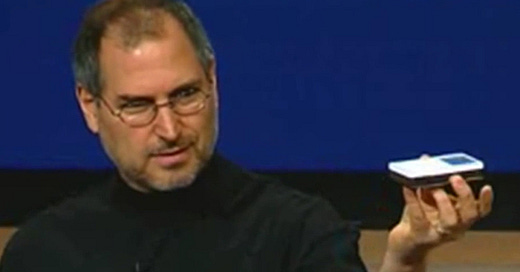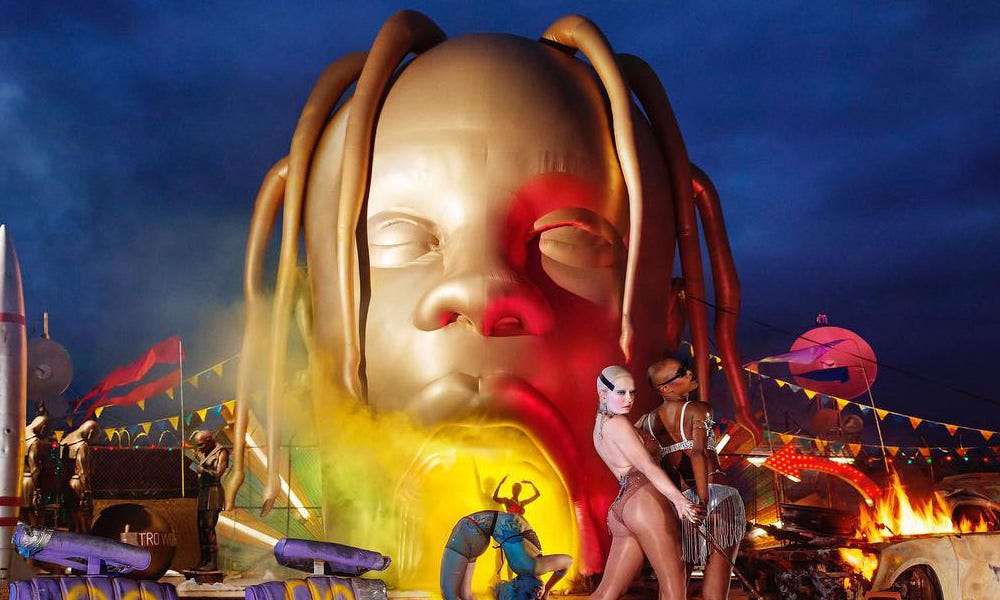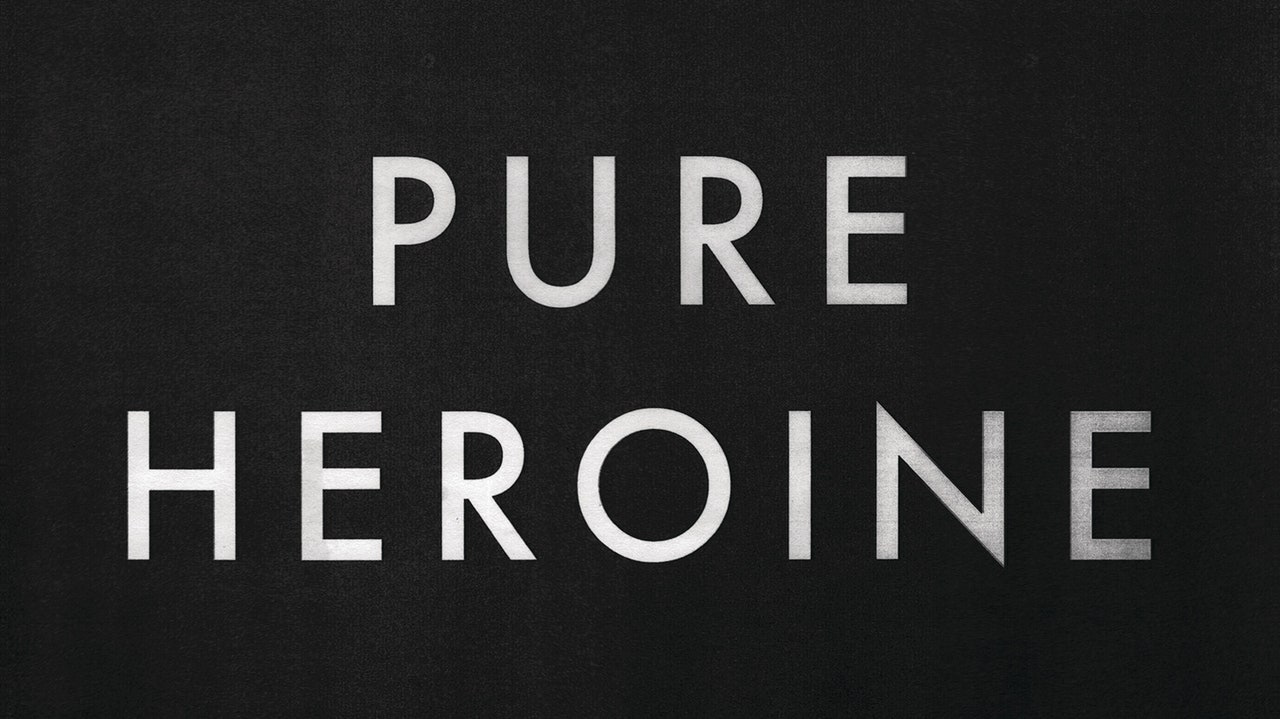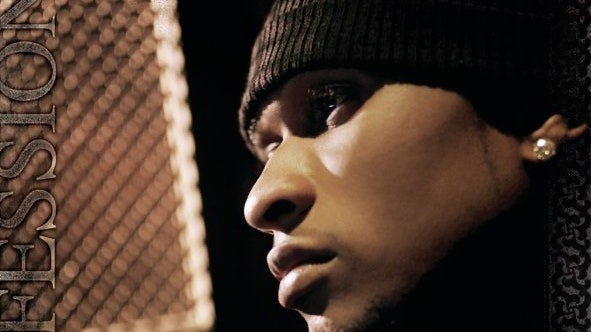Apple Core: Travis Scott, RATM, Lorde, Usher and Solange
Our journey through Apple Music's Top 100 Albums of All Time continues.
Apple Core
Liz and I are listening to Apple Music’s Top 100 Albums of All Time. One album a day-ish, counting down to number one. We did this with Rolling Stone Magazine’s top 500 Albums of Al Time, and it took more than a year. This should only take a hundred days or so. I’ll be posting a few thoughts here as I listen. We’ll be dropping standout tracks from the listen on this Spotify playlist here.
Day 98: Travis Scott — ASTROWORLD
There's a part on the fifth track here, "STOP TRYING TO BE GOD," where James Blake is singing over a harmonica played by Stevie Wonder(!) that is legitimately beautiful. Blake is just oohing and aahing while Stevie vibing and it all swirls together into this wistful symphony that sounds like a soundtrack to being carried up to Heaven. It's transcendent listening. I want it go on forever. And then Travis Scott starts rapping.
ASTROWORLD has a lot of moments like this. Scott has a real knack for assembling talent. On ASTROWORLD, the list of collaborators is downright preposterous. In addition to Wonder and Blake, you've got Drake, the Weeknd, Tame Impala, Frank Ocean, Thundercat ...I mean, for crying out loud! I imagine most of these guys will end up on this Top 100 list at some point, and Scott has them all on the same LP. He's a gifted a curator. He knows how to combine their powers Megazord-like to create some great stuff. They all sound terrific. They're not the problem. The problem is that Travis Scott can't rap.
His bars are ridiculous. "I swear we like the same sex / Fuck with all my chains on, let’s have chain sex.” "“First visit, I gave her a pearl necklace / Next visit, I’ma need your girl naked." Bro, what are you TALKING about.
Scott raps about sex a lot. Nothing particularly insightful, just the chest puffing Lonely Island skewered in "I Just Had Sex." That's not, in and of itself, a problem. There are lots of great songs about sex. Heck, a guy in the Bible wrote a song about sex and everyone liked it so much they started calling it "The Song of Songs." But Scott doesn't seem interested in saying anything *about* sex other than that he's having it and aren't we all so happy for him. His music oozes with this awesomely swimmy, paranoid production that invites closer listening and then it's just him rapping "I told her it's BYOB, that means buy your own boobs." Again: bro, what? Are you talking about??
I kept thinking of SZA, who Scott has worked with a bunch of times and seems sonically inspired by. Like Scott, a lot of SZA's production has a woozy quality that evokes anxiety, depression and release. Like Scott, SZA is clearly interested in sexual connection as a lyrical topic. UNLIKE Scott, SZA actually has something to say! "Open Arms," which she recorded with Scott, explores the impact that sex with a loser is having on her self-esteem. That's interesting. That's the sort of bracing honesty that's helped make SZA such a star. And, yeah, they can't all be SZA (who i’m sure will turn up on this list as well, thankfully much higher than #98.) But I don't think it's asking too much that the "98th best album of all time" go a little harder than "diamonds are the wife of life."
Day 97: Rage Against the Machine — Rage Against the Machine
The gym I go to is kinda MAGA-coded. Not in an overt or explicit way, but you know what I'm talking about. American flags, lots of Thin Blue Line stuff, Covid skepticism, etc. Alito would love it. It's the sort of place you can tell has a lot of thoughts on, like, affirmative action. But you know what? They play Rage Against the Machine.
There's not a whole lot more to be said about Rage, especially this first album. You know the story. In 1990, Tom Morello had a guitar, a Harvard degree, and a want ad for “a socialist frontman who likes Black Sabbath and Public Enemy.” He found exactly what he was looking for in Zack de la Rocha. Their chemistry was a rocket ship. Within weeks, they had a demo — 12 red-hot tracks of righteous fury and activist rallying cries. Within a year, they were fielding multiple offers from major studios. By 1992, they had their debut, which many are calling the 97th best album of all time. Not bad.
You know all about "Killing In the Name" and "Bombtrack" and the slew of lyrics that have become sacred writ among America's nascent revolutionaries. You know that Rage fused rap and rock like no one before or since to level blistering political invective against anti-Black, anti-indigenous and anti-worker systems in America. You know all this.
So what I'm curious is about is: Why doesn't EVERYONE know this? Why is Rage still so beloved by people who'd find their politics delusional, if not dangerous? How does a Jan 6 guy driving a Ford-F150 with a Blue Lives Matter bumper sticker blast "Killing in the Name?" How did that conservative commentator a couple years back type out an actual tweet to Tom Morello that said "I used to be a fan until your political opinions came out" and hit send?
I've got two theories.
The first is pretty simple: Rage Against the Machine is a lot of fun. All the Harvard degrees, social awareness and activist impulses aren't going to get you far if the music isn't good. And this music absolutely rocks. You can shut off you brain, turn on Rage Against the Machine, and have a great time. I don't advise this, but it's not hard.
The second theory is that Rage Against the Machine's political wrath actually has a much broader appeal than one might think. Rage is at least as furious at the empty rhetoric of liberals as they are the fascist creep of conservatives. Zack hated Bush, but he HATED Clinton. The band played protest concerts outside of both the RNC and the DNC (and famously, received a far more violent police reaction at the DNC). That is to say, if you're mad at the system, Rage is mad with you. What this band is also able to do, for those willing to give them the time of day, is educate your anger and hone it into something purposeful. "You're mad at the boot on your neck? That's good. What if I told you the same boot was on the necks of the protesters in Watts? In the Pine Ridge Indian Reservation? Along the southern border?" The anger of Rage Against the Machine inspires more than action. It inspires solidarity.
So I think at least part of Rage's mass appeal stems from the fact that they're so unassailably correct on the merits, and their message can point the way towards the sort of coalition-building that Democrats have been so miserable at in recent years. The other part of the appeal is, like I said, that it's just great music!
On those merits, Rage is a lightning-in-a-bottle success. But as Tom Morello said in 1994: "The test of whether Rage Against the Machine will be a successful band has nothing to do with album sales. It’s going to have to do with the way the message translates into concrete action.” The jury is out on that measure. But if they fail, it won't be for lack of trying.
Day 96: Lorde — Pure Heroine
You can learn pretty much everything you need to know about adolescence in the '10s by listening to Pure Heroine. If you're pressed for time, you can stick to the first track. If you're REALLY pressed for time, you can stick to the first line: "Don't you think that it's boring how people talk?"
Ella Yelich-O’Connor was a necessary corrective to the teen pop of the '00s, a blast of ice cold air into the sweaty club anthems and sugar sweet lyrics people expected from young pop stars at the time. While her contemporaries sang about love and heartbreak and loneliness and partying — always partying — Lorde captured youth's essential ennui. Most of us post-teenagers have forgot how much time we spent being bored out of our skulls. Some call that time youth being wasted on the young. Lorde saw it as raw material for her debut. "We're never done with killing time," she growls on '400 Lux.' "Can I kill it with you?" In Pure Heroine, other people are the only salve to the emptiness of suburbia.
Lorde's genius was to marry these anthems of dissatisfaction to equally skeletal beats over glacial synths. Lorde's voice — an evocative, underappreciated instrument — can growl or moan or mumble, but it's always fused with the precise emotion her lyrics require. That's not easy when the emotions of Pure Heroine are so ephemeral. On 'Team' — my favorite Pure Heroine track — she delivers the "Everyone's competing for a love they won't receive" with a jolt of real anxiety, real despair. But "Ribs," her bittersweet ode to vanishing youth, is probably more impressive, swinging between the joy of childhood friendship ("we're sharing beds like little kids, laugh until our ribs get tough!") and the dawning awareness the adulthood is looming and nothing can stop it ("but that will never be enough.")
The album's centerpiece was also one of the defining hits of the decade. 'Royals' is about the irony of a bunch of broke ass suburban kids listening to anthems about fancy cars and pricy liquor. "We don't care," she shrugs. "We're driving Cadillacs in our dreams." Of course, that irony is now doubled back on itself since it's safe to say Lorde has now seen a diamond in the flesh. She also lives in a city we've all seen on the screen. She's living out the unattainable dreams she used to write about with a detached longing. Pretty ironic, sure. But hey, she's a millennial — probably the last millennial to achieve pop fame before that generation started making way for Gen Z. What's a millennial anthem without several layers of irony?
Day 95: Usher — Confessions
In 2004, Usher was convinced he'd completed his masterpiece. Confessions was a sprawling, vulnerable testament to his failed relationship with TLC’s Chilli — a relationship he'd sabotaged by cheating. As far as Usher was convinced, the album had it all. A juicy, headline-catching angle. An ace producer in Jermaine Dupri. It even had a surefire hit single in "Burn," which he was believed was poised for chart domination. Usher sent Confessions to the label and the label sent it back. They told him it wasn't done. The album was good, they said. But it still needed a hit.
Usher begrudgingly reached out to a few collaborators and ended up sitting down with a red hot Atlanta guy named Lil Jon. Lil Jon had been dragging crunk to the mainstream, and he believed there was potential for mixing his brash, all caps crunk style with Usher's smooth, silky R&B. Usher was intrigued. They got together and came up with "Yeah!"
In the end, Usher wasn't wrong. "Burn," which was eventually released as a single, was a big hit. It's a great song. But the label was right too. "Burn" was a hit. But "Yeah!" is different. "Yeah!" is amazing. "Yeah!" is eternal.
On paper, it doesn't seem like it should work. You can plink the riff out with a single finger. There's a guy screaming "OK!" the whole time. The title is confusing, and seems designed to create some Who’s on First? hijinks. It's a Redbull vodka outlier in the context of Confessions' moody red wine flow. But it is absolutely undeniable. If you were there in 2004, you remember the instant sea change, the way the whole pop world tilted on its axis towards "Yeah!" I was going to Moody Bible Institute, which didn't lend itself to a lot of clubbing. It didn't matter. We loved "Yeah!" Everyone loved "Yeah!" Everyone STILL loves "Yeah!" Did you see this?
Narratively, "Yeah!" actually ended up working pretty neatly within Usher's grand vision of Confessions. "Yeah!" is about Usher and his buddies hanging out in the club, keeping it chill, when all of a sudden his girlfriend's friend starts dancing with him, whispering in his ear. Oh no! What's Usher's gonna do? Stay true to his lady? Or give into temptations? Lil Jon is in the background, shouting, which can't make the decision any easier. And just when Usher's moral crisis reaches its megawatt zenith, here comes Ludacris to turn it up even higher, and he won't stop till he gets 'em in their birthday SUITS.
Luda’s had some grand slam guests verses in his time, but this is the one that cemented his legacy. He crams more syllables into a bar than you'd believe possible, as is his wont, but he's so in his bag that it goes down like gravy.
And then, everyone is just vibing, rewinding it back and shouting each other out for all the cool things they do that make your booty go smack. What happened to Usher and his girlfriend's friend? Well, you'll have to listen to the rest of Confessions.
Day 93: Solange — A Seat at the Table
"If you don’t understand my record, you don’t understand me—so this is not for you.” Master P says that on A Seat at the Table, and it feels like a mission statement. Solange is pretty adept at weaving in and out of personal narrative here, balancing universal themes of love and self-worth with observations more unique to her personal experience as a Black woman in 2016.
That year is crucial for understanding what's happening in A Seat at the Table. Remember 2016? Quite a year! I suppose everyone has some sort of era-defining memory of 2016, and Solange’s was at a Kraftwerk show in New Orleans. She wrote an essay about it. She was there with her 11-year-old son and got up to dance. A group of white women nearby started mocking her, hurling insults and then garbage her way.
This experience rocked Solange, not least because her son was there to see his mother treated like this. She started writing about it and, within a few weeks, had an album's worth of material. This album.
“Be leery ’bout your place in the world/You’re feeling like you’re chasing the world," she sings. "You’re leaving not a trace in the world/But you’re facing the world."
A Seat at the Table is full of such personal reflections. On "Mad," she grapples with the stereotype of the Angry Black Woman, challenging White America to recognize that if all they can see when they look at Black women is anger, than it says more about America than it does about Black women. There's a similar energy to the poised, lovely "Don't Touch My Hair."
But Solange also gets deeply personal, like on the lush "Cranes in the Sky" which reads like a modern day Ecclesiastes, with Solange crossing the nation in search of personal fulfillment via love, drink, sex and stuff, before finally determining that true peace can only be found right back where she started.
"Where she started" is another theme, and this album is popping with family. We've got spoken word sections of Tina Lawson and Matthew Knowles, Solange's mom and dad, talking about the experience of being Black parents in America with startling candor. “It’s such beauty in black people," Lawson says. "And it really saddens me when we’re not allowed to express that pride in being black and that if you do, then it's considered anti-white. No! You’re just pro-black. And that’s okay.” Remember, this was 2016. George Floyd was still alive.
A Seat at the Table has a keen sense of flow, and is paced more like a long poem than an album. There are no obvious singles, no bangers, nothing to really get stuck in your head or scream along with in the car. If that's your vibe, Solange knows you have options. A Seat at the Table is a meditation. It's not for the people who don't understand it.










